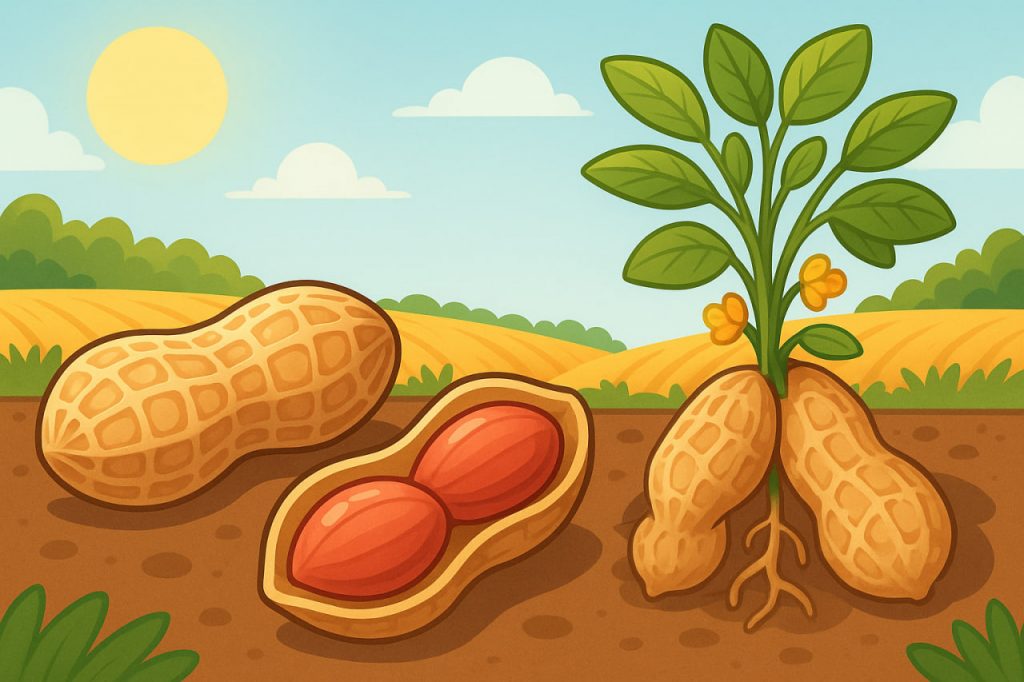Peanuts are among the most recognizable and widely consumed foods on Earth, playing a major role in both cuisine and the global economy. Despite being called a “nut,” peanuts are actually legumes, more closely related to beans than to walnuts or almonds. Their fascinating history, nutritional richness, and versatility have made them one of the most popular foods worldwide.
The Origin of Peanuts
Peanuts originated in South America, most likely in the regions of present-day Peru and Bolivia. Archaeological evidence suggests they were cultivated as early as 3,500 years ago. Spanish explorers brought them to Europe after the discovery of the Americas, and from there peanuts spread to Africa and Asia. In Africa, they became a staple crop, and eventually they reached North America, where industrial-scale peanut oil production began in the 19th century.
Why Are Peanuts So Popular?
- Accessibility – Peanuts grow easily and provide high yields even in challenging conditions.
- Nutritional value – They are rich in protein, fiber, healthy fats, B vitamins, and minerals.
- Long shelf life – Unlike many fresh foods, peanuts can be stored for extended periods.
- Versatility – Used in snacks, sauces, desserts, oils, and the famous peanut butter.
- Economic importance – Countries such as China, India, Nigeria, and the USA rely heavily on peanut production.
Health Benefits of Peanuts
Peanuts provide unsaturated fatty acids that support heart health. Their protein content helps repair and build tissues, while magnesium and potassium benefit the cardiovascular and nervous systems. They are also rich in antioxidants, including resveratrol, known for slowing down cellular aging.
Potential Risks
Peanuts can cause allergic reactions, sometimes severe. They are also calorie-dense, so overconsumption may lead to weight gain. Poorly stored peanuts may develop aflatoxins—toxic substances produced by certain molds.
Peanuts in the Modern World
Today, peanuts are a global food staple. In the United States, peanut butter is iconic, while in Asia peanuts are commonly used in sauces and noodle dishes. In Africa, they are the base of soups and stews. Beyond food, peanuts are also used in cosmetics, oils, and even biofuel.
Conclusion
From the fields of ancient South America to kitchens worldwide, peanuts have become an essential part of human diets. Their combination of affordability, nutrition, and culinary versatility explains why they remain one of the most beloved foods across cultures.
Glossary
- Legumes – a plant family that includes beans, peas, and peanuts.
- Antioxidants – substances that protect cells from damage caused by free radicals.
- Aflatoxins – harmful toxins produced by molds that may grow on improperly stored crops.
- Resveratrol – a natural antioxidant that slows down cell aging.
- Unsaturated fatty acids – healthy fats that reduce the risk of heart disease.


